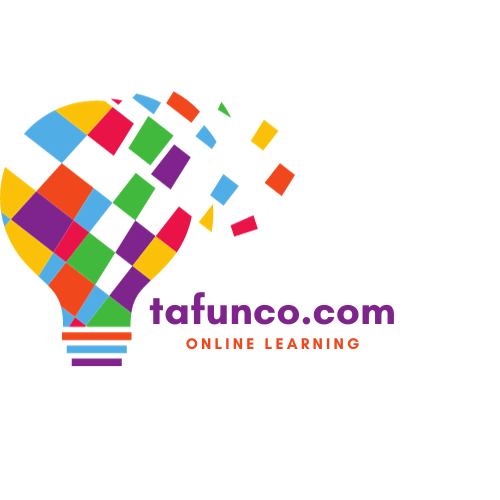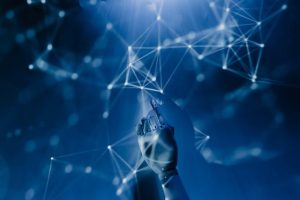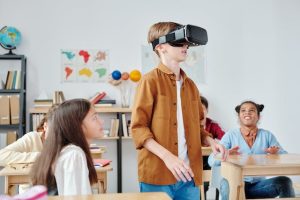The quest for knowledge has crossed conventional boundaries in the 21st century’s fast-paced and constantly-changing environment. Online learning has become a potent tool that helps lifelong learners broaden their knowledge, develop new skills, and remain current in a world that is changing at an accelerating rate. The development of a growth mindset—the conviction that skills can be improved by commitment and effort—is essential to this path.

Gaining Knowledge of the Growth Mindset
The growth mindset theory, first introduced by psychologist Carol S. Dweck, holds that people who think they can improve through hard work, perseverance, and learning from failures are more likely to succeed in the long run. This is in contrast to a fixed mentality, which holds that a person’s aptitude and intellect are permanent traits.
Online learning becomes the perfect medium for developing a growth mindset since it fosters resilience, adaptation, and ongoing learning by nature. Online courses provide lifelong learners with the chance to rise to difficulties, learn from mistakes, and see setbacks as opportunities for growth.
The Adaptability of Distance Education
The flexibility of online learning is one of its main benefits for lifelong learners. Conventional obstacles, such tight timetables and geographic limitations, are removed, allowing people to pursue education at their own pace. This adaptability gives students the freedom to choose their own speed, resulting in a more successful and individualized learning process.
Furthermore, a wide variety of interests and ability levels are catered to by the extensive selection of online courses. There are many possibilities available in the world of online education, whether one wants to study philosophy in detail, learn a new language, or pursue advanced programming. This diversity not only takes into account various learning preferences but also pushes people to go outside of their comfort zones and learn new things.
Developing Resilience via Ongoing Education
Online learning encourages flexibility and resilience, which supports an attitude of continual learning. Online course participants who are lifelong learners are often exposed to a dynamic and quickly evolving digital world. People must constantly adapt to new knowledge, techniques, and technologies as a result of this development; this is a necessary talent in the ever-evolving work market of today.
As people work with varied groups, traverse a wealth of resources, and overcome obstacles, the act of learning online itself becomes a voyage of self-discovery. These encounters help people become more resilient, which is an essential quality in the face of uncertainty and change.
Overcoming Obstacles and Accepting Setbacks
People with a growth mentality are more likely to see possibilities for progress rather than insurmountable hurdles when faced with difficulties and disappointments. Online students may run into problems with time management, technological challenges, or challenging material. Still, overcoming these obstacles on your own strengthens your feeling of achievement and improves your ability to solve problems.
Interactive features like discussion boards, group projects, and knowledge applications for real-world situations are often included in online learning environments. By interacting with these elements, lifelong learners may exchange experiences, seek for help, and come to collectively learn from both achievements and mistakes. The concept that learning is a continual, group effort rather than a lonely undertaking is reinforced by this collaborative method.
Investigating the Changing Potential of Virtual Learning: Fostering Lifelong Students with an Adaptive Mentality
In a time of rapid technological development and changing employment landscapes, seeking knowledge has come to be associated with flexibility and ongoing development. At the front of this educational transformation is online learning, which provides lifelong students with an exceptional chance to adopt a growth mindset, or the conviction that abilities can be improved with effort and commitment. In this investigation, we go further into the transformational potential of online learning, looking at how it promotes resilience and personal growth in addition to making it easier to learn new things.

The Growth Mindset’s Fundamentals for Lifelong Learning
Pioneered by psychologist Carol S. Dweck, the growth mindset idea is the foundation of online learning. Individuals with a growth mindset, who are lifelong learners, recognize that aptitude and intellect are not fixed characteristics but rather attributes that may be developed with work and a will to learn. This basic change in viewpoint affects how people approach problems, see setbacks, and see their opportunity for development.
Because it fosters the idea that learning is a lifetime process that is not limited by age or situation, online education offers an ideal environment for the development of a growth mindset. The digital environment breaks down the barriers that have traditionally surrounded education, enabling people to interact with a wide range of courses, topics, and groups. This creates an atmosphere that encourages intellectual curiosity and pushes limits.
Adaptability as a Personalized Growth Catalyst
Personalized learning experiences are based on the freedom that comes with online education. Lifelong learners are able to customize their educational path to fit their own requirements, taking into account personal preferences, family obligations, and job schedules. This flexibility promotes the formation of self-discipline and time management abilities, which are critical elements of a growth mindset, in addition to giving people the capacity to take charge of their education.
The extensive selection of online courses, which covers anything from recreational interests to professional development, allows students to pursue new interests and uncover hidden passions. In addition to increasing engagement, having the option to choose courses that fit personal interests supports the notion that learning is a dynamic process rather than a static collection of knowledge.
Overcoming Adversity to Build Resilience: Acknowledging Failures
There are drawbacks to online learning. For students, obstacles might include difficult courses, technical issues, and the need for self-discipline. However, it is amid these difficulties that resilience is planted. Online courses teach lifelong learners how to not only overcome challenges but also see failures as essential to the learning process.
Online courses featuring discussion boards, group projects, and interactive features provide students a chance to talk about their experiences, ask questions, and work together to solve problems. The collaborative nature of virtual learning encourages a feeling of fraternity, reiterating the notion that acquiring information is a joint venture in which every obstacle is a chance for group development.
Community Acceptance of Lifelong Learning
Among the digital spaces of online learning, a strong feeling of community develops. Lifelong learners make connections with peers who have different experiences, cultures, and backgrounds. By sharing viewpoints, these connections strengthen their learning process. Because online courses are collaborative in nature, they promote idea sharing, achievement celebration, and group resilience in the face of adversity.
Online learning communities grow become vibrant networks of inspiration, encouragement, and support. These networks, whether online gatherings, cooperative initiatives, or pooled resources, are essential in fostering a development mentality. Lifelong learners come to understand that learning is a group endeavor rather than an individual one, with one person’s progress influencing the development of others.
Discovering How Technology and Lifelong Learning Work Together
Innovation, accessibility, and flexibility are all interwoven in the dynamic tapestry that is the relationship between technology and lifelong learning. Through the use of cutting-edge technology, online education offers immersive learning opportunities outside of typical classroom settings. Learners are exposed to a variety of modalities that accommodate a range of learning styles, from interactive multimedia information to virtual reality simulations. This reinforces the concept that acquiring knowledge is a customized and dynamic process.
This life-changing experience is further enhanced by the incorporation of artificial intelligence into online learning environments. Algorithms for personalized learning assess each learner’s progress individually, modify the way information is delivered, and recommend more resources based on their areas of strength and weakness. As everyone learns at a different rate and that constant development is the ultimate aim, this not only increases learning efficiency but also supports the growth attitude.
Global Views in Virtual Learning Communities: Crossing Boundaries
Geographical barriers are removed via online learning, which creates a global classroom where students from all over the globe come together to study. This global perspective enhances the educational process by introducing students to a variety of cultures, perspectives, and problem-solving techniques. Engaging in online communities allows lifelong learners to become part of a rich knowledge ecosystem where debates and cooperative initiatives create a melting pot of ideas.
Online education communities’ heterogeneous makeup fosters an awareness for variety and adaptation, which in turn cultivates a growth attitude. Interacting with peers from other backgrounds helps to develop interpersonal skills and a broader comprehension of the subject matter, resulting in well-rounded people who can successfully negotiate the challenges of a globalized society.

Career Advancement in the Digital Era
Online learning provides many lifelong learners with access to professional development, enabling them to remain relevant in quickly changing sectors. In the competitive employment market, having the flexibility and accessibility to upgrade one’s present abilities or gain new ones becomes a strategic advantage. With a growth mindset, lifelong learners see professional obstacles as chances for skill development and career progression rather than as impediments.
In online learning environments, professional networking becomes a priceless resource. Through their connections with mentors, industry experts, and like-minded professionals, learners create a virtual ecosystem that fosters cooperation and knowledge transfer. This network-centric strategy, which is consistent with the ideas of a growth mindset in the workplace, supports the notion that success is not just the product of individual accomplishment but also the result of teamwork.
The Future Revealed: Technological Advancement and Lifelong Learning
The digital era presents great opportunities for lifelong learning as technology develops further. Emerging technologies such as augmented reality and artificial intelligence have the potential to significantly improve the virtual learning environment by offering more customized, interactive, and immersive learning experiences. Equipped with a growth mindset, lifelong learners will be at the forefront of adopting new technology breakthroughs, seeing them as instruments for ongoing investigation and progress rather than as disruptions.
In summary
For lifelong learners, online learning offers a transforming experience that may foster a growth mindset in addition to new skill acquisition. Those who embrace the concepts of resilience, adaptation, and ongoing learning can confidently negotiate the complexity of today’s environment. Online education is becoming a more and more popular option for those who want to acquire the skills and mentality necessary to succeed in a constantly changing world.



